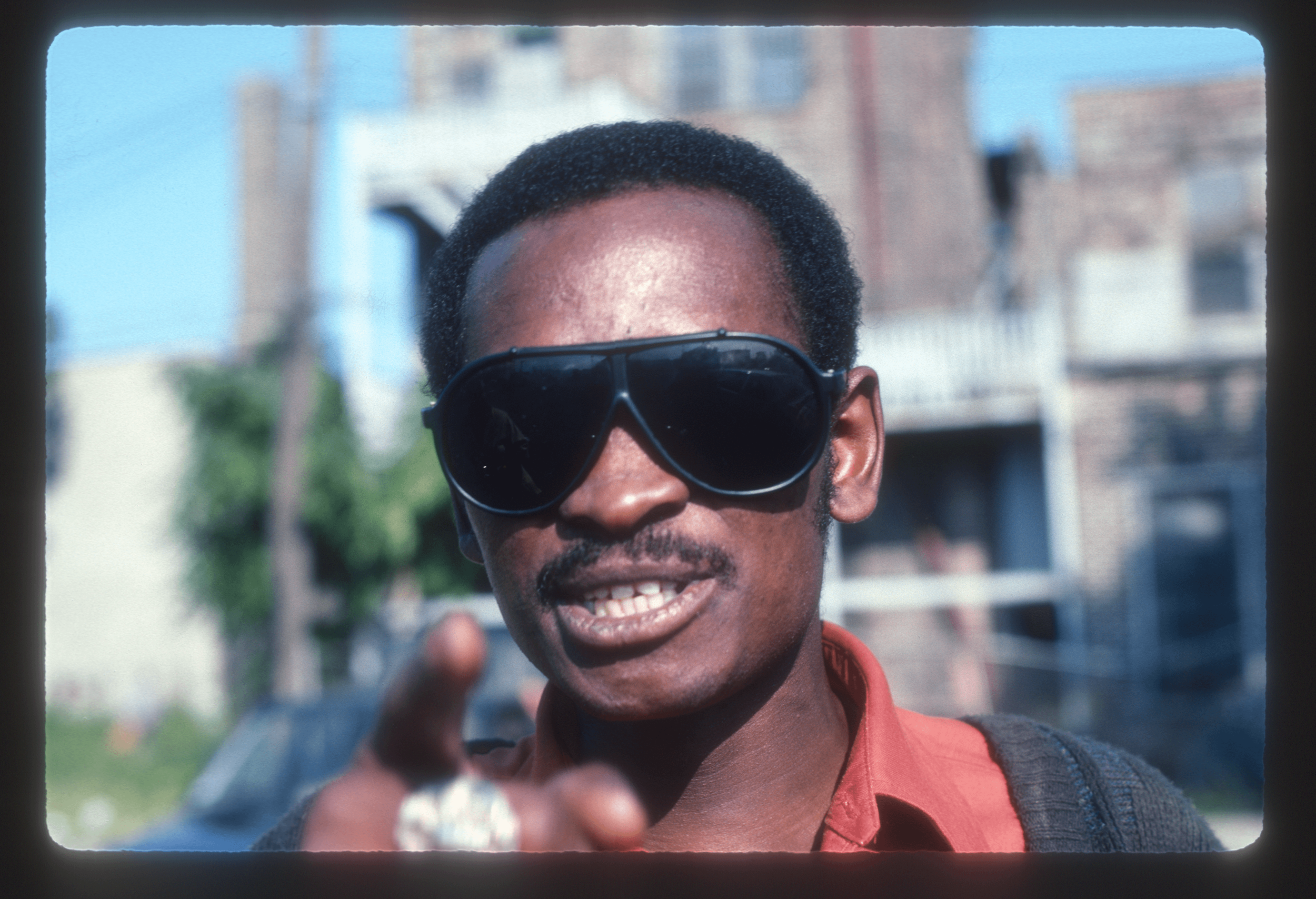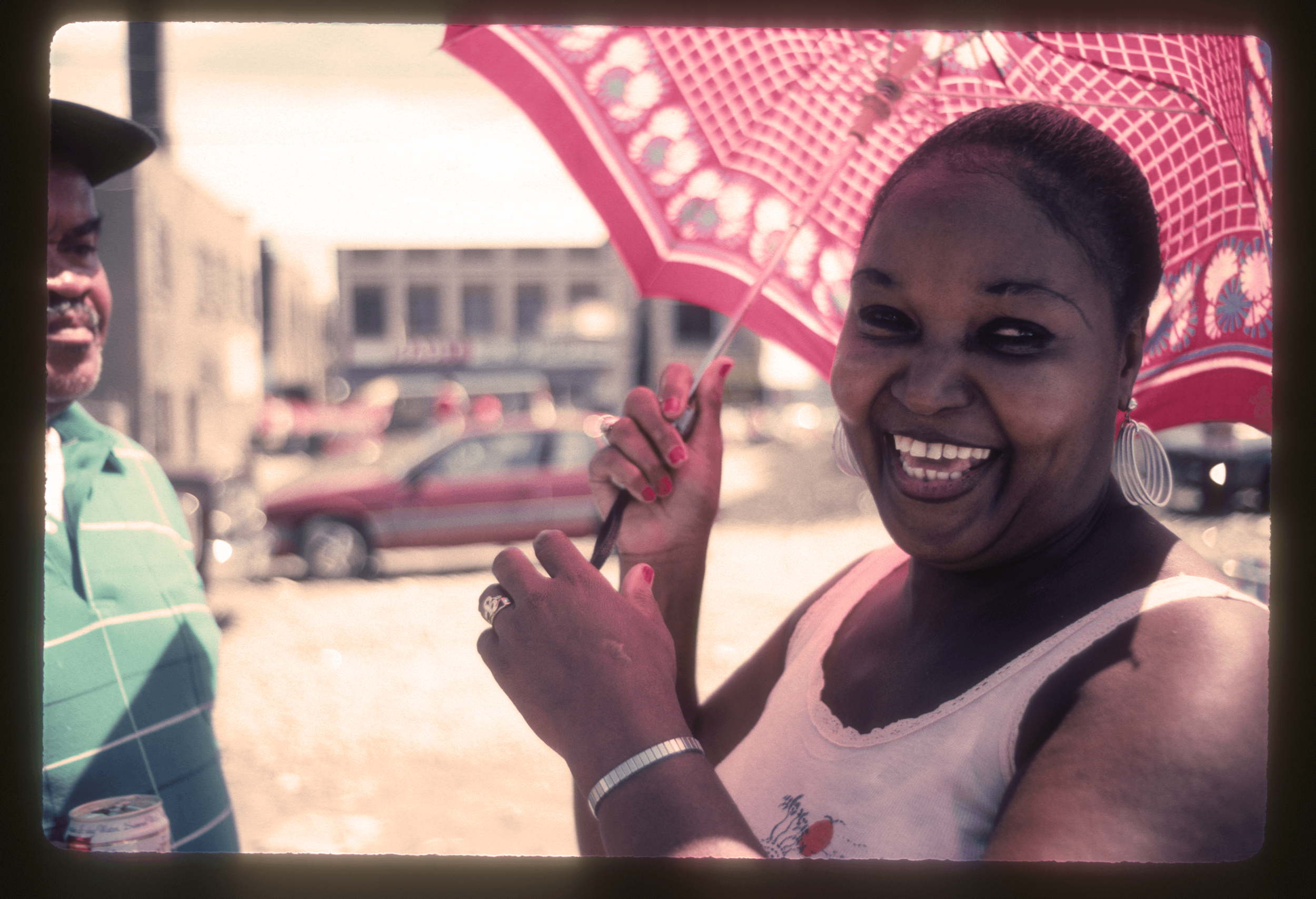Willie James Blues (in development) is a meditation on migration, music, race and family, a sorting through of accidents I fell into while living in the Maxwell St. Market area of Chicago in the early-1980s through mid-1990s.
“During the week, the dusty vacant lots are more desolate than ever. Shabbily dressed old men sit silently on crumbling stoops and drink wine in garbage-strewn alleys; the few remaining buildings sag wearily, burned-out stairwells and boarded-up windows telling the perennial urban story of neglect and decay. But every Sunday morning, the energy of the Maxwell Street market area rises phoenixlike from the rubble … James and his band, immediately christened "Maxwell Blues," rapidly established themselves as the most exciting thing to hit the street in years…”
Whiteis, Dave. “Maxwell Street Blues.” Chicago Reader, 13 October, 1988
In addition to his reputation as “the most exciting thing to hit the street in years,” by the time Willie James died he had accumulated four families and nine children. My son is # 8.
Willie James Blues is an opportunity to revive conversations left fallow after his death. Conversations with his now grown children, their mothers, and my own son. To think about connections and distances. To think about life trajectories. And, to explore the space of family constructed outside conventional boundaries.
In addition to the personal story is an underlying narrative about migration. Willie James came to Chicago from West Point, GA in 1961. He learned to play guitar on a cigar box strung with catgut fishing line, inspired by a musician called One Arm John. He came to Maxwell St. for the same reason so many people came, to celebrate community. After his death, a friend reminisced, "I remember him telling me about Maxwell Street, `This is the last place that ties the old world to the new.’" Since then, his family has spread across the country.
I start with materials gathered during my years living on Maxwell St. – a collection of audio recordings, videotapes and photographs. And, reflection on a space that literally doesn’t exist today (the land the 100 year old market used to occupy was taken over through eminent domain by the University of Illinois/Chicago in 1994). This year I will travel the country where extended family has migrated, to re-establish relationships and record stories with my son’s half-siblings and their mothers. Some I haven’t seen for nearly 25 years. Some have lived with me over the years. A couple I barely know. The goal is to gather some of the detritus of these chance relationships and give shape in the form of a reflection and response.
How does this project fit in with a broader trajectory of my work? The most recognized output over my career is long-form documentary, the type of work that typically involves years of fundraising, small bursts of production and a lot of angst. That’s OK. The results have won recognition and awards and earned an academic career.
Between these longer documentaries, I have produced a less recognized, but significant collection of work that looks at domestic life and family, ranging from a very early film, Before She Knew (1985) video/S8film, 8:30 min. about a photo found in my grandmother’s belongings; to Elkhart Lake (1986) 16mm/BW, 3 min., shot in another grandmother’s kitchen about Thanksgiving ritual, to Furies (2011) video, 11 min., that explores the possibility of creating a protective shield for someone who repeatedly trips in life. Also, Unbidden Voices (1989) video, 32 min, an experimental documentary about women’s roles in traditional culture, the value of women’s labor, the exploitation of women and the experience of immigration.
I am interested in exploring work that is close to my heart again. To look at the world through a personal lens. To create work that foregrounds everyday life. To take stake. To talk to people, to explore passion, trauma, and now, maybe some peace.
I plan to work in “cheap media” mode, without apology, as a one-person band, exploring territory that hasn’t been visited for a long time. Sleuthing. Digging into the raw material of life and maybe finding even more accidents. I envision myself as the primary narrator (whether as voice-over, on-camera, or text), anchoring a range of voices through an essayistic approach.
Below are photos taken at the Maxwell Street Market in the late 1980s when I lived in Chicago.











